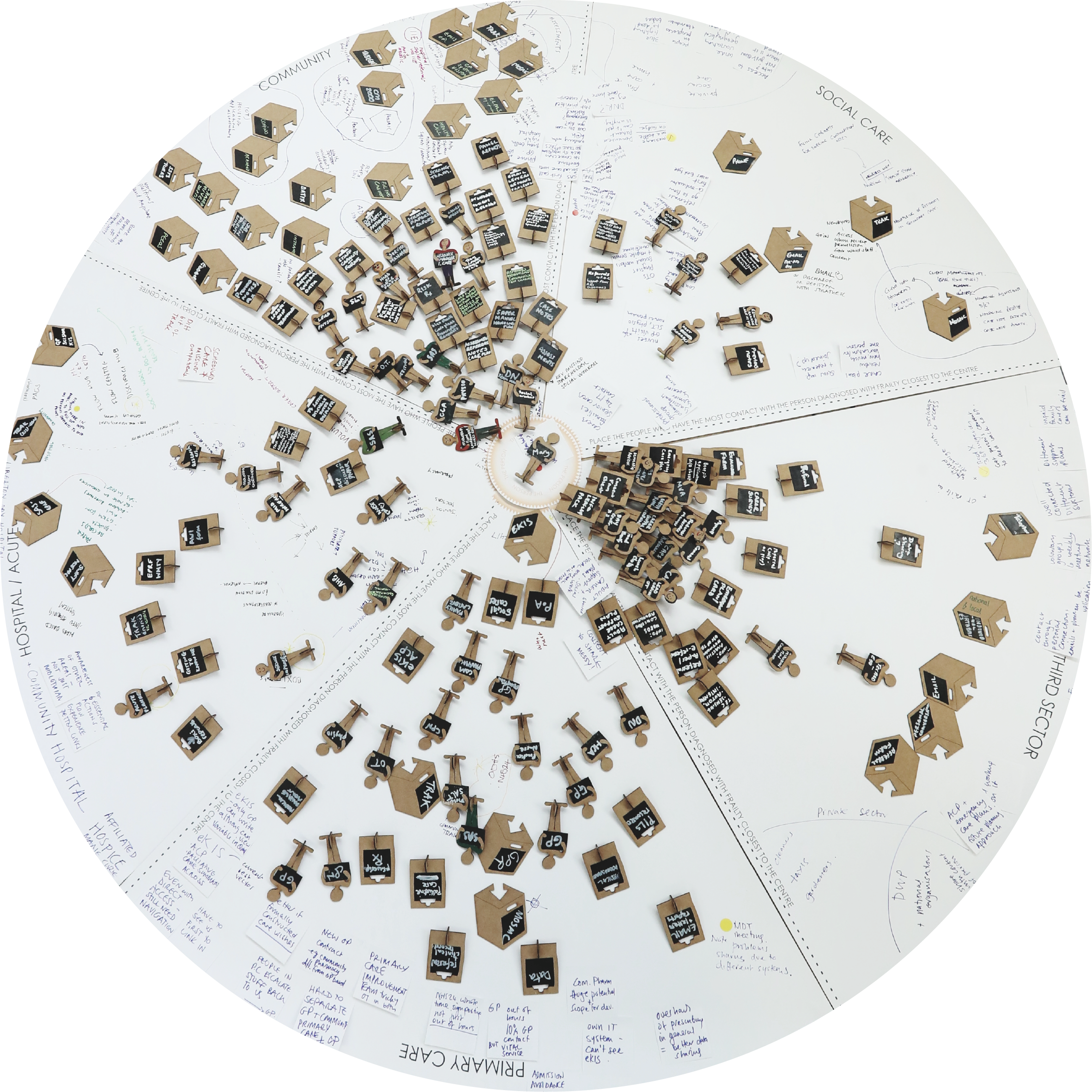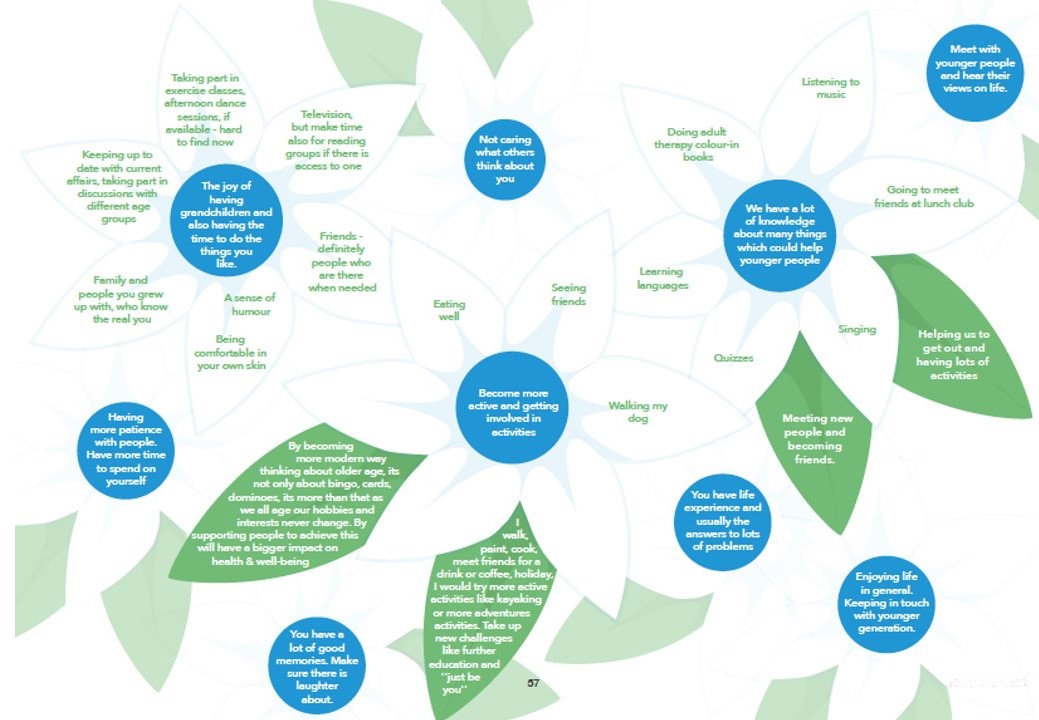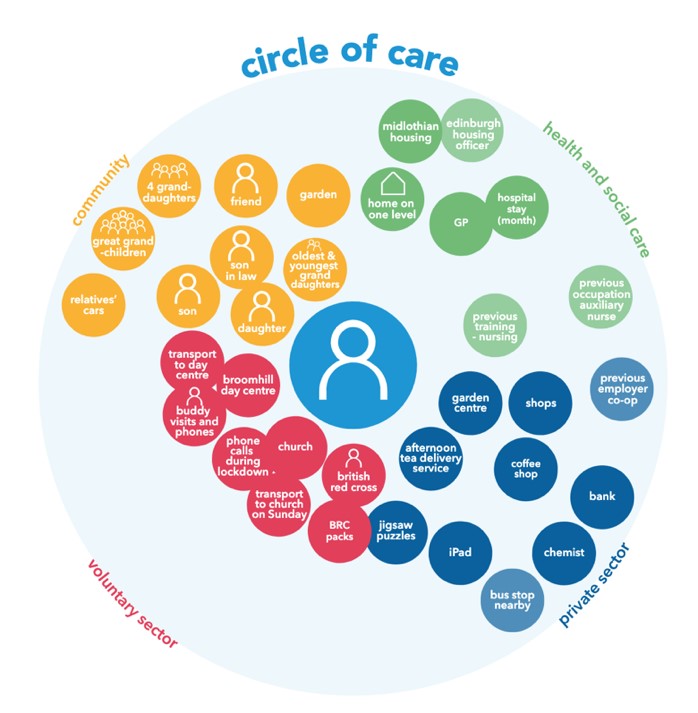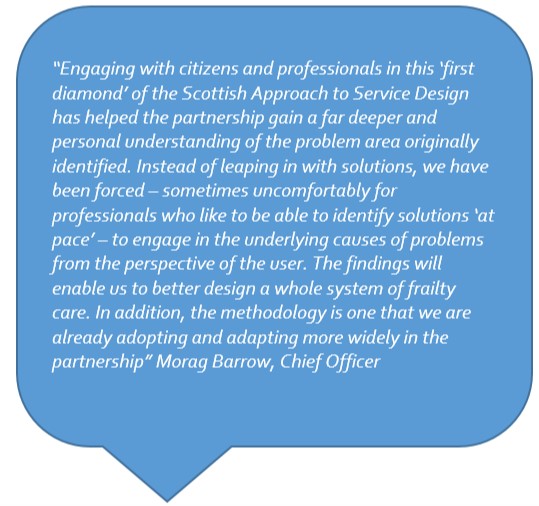Transforming Midlothian’s Frailty System of Care using the Scottish Approach to Service Design
Midlothian Health and Social Care Partnership needed to transform traditional models of care to enable the increasing numbers of people living with frailty to achieve their best possible quality of life. Despite introducing a number of innovative ways to identify and support people, we recognised some continuing challenges:
- The experience of care and support for people living with frailty, their family and carers, and staff can be difficult, fragmented and full of barriers;
- Systems and pathways of care are not consistent;
- There are structural barriers between different organisations – in particular in sharing information – which get in the way of person-centred care;
- Solutions often don’t address the whole system at scale.
Who are our key partners?

As well as people living with frailty and their carers, Midlothian Health and Social Care Partnership is working with a number of partners including:
- The Digital Health & Care Innovation Centre (DHI)
- Local Clinicians
- The Red Cross
How are we doing it?
In the Discover phase we enabled active participation using design methods to understand the current system of care from different perspectives. This helped us to understand the problems that people with frailty, carers of people living with frailty and practitioners experience. We looked at how we might take a preventative approach and how to support people to manage their own care.
The stages of user research included:
SYSTEM MAPPING & OBSERVATIONS

A service mapping workshop built up a picture of the system of care from the perspectives of the many different professionals involved. Researchers from DHI observed a multidisciplinary frailty meeting and a British Red Cross ‘What Matters?’ frailty assessment in a person’s home.
This highlighted the complexity of the system and the need to support professionals and citizens to better navigate and co-ordinate care.
PUBLIC ENGAGEMENT
The approach to public engagement was adapted due to the COVID-19 pandemic to facilitate remote engagement using greeting cards and an online tool.

IN-DEPTH INTERVIEWS
We undertook interviews remotely due to COVID-19. Telephone was preferred rather than video calls to ensure that participants did not need IT skills or an internet connection.

The interviews produced "Circle of Care" visual maps which were posted out to participants and used to inform a second interview.
We gained insights about the support people value, their personal challenges and the system barriers that restrict access to support. People reflected -using the maps- about future aspirations and support they might need.
DEFINE
We engaged professionals from across the frailty system of care in interpreting the interview maps, with each session focusing on a different interview participant. The sessions culminated in the generation of ‘How Might We...?’ questions to translate findings into actionable insights.
The maps led professionals to reflect that how they currently tackle system challenges can often contribute to the system’s complexity. The process really helped us to cut through by understanding what people really need and value.
What is happening as a result of doing things differently?
The findings and ‘How might we…?’ questions generated 10 related focus areas.

The importance of helping people living with frailty and carers to navigate the complexity of the health and care system was central to the findings.
We are now in the ‘Develop’ phase of the Scottish Approach to Service Design. This involves working with people living with frailty, carers and professionals to develop creative and sustainable ideas for ways of responding to our clear, evidence-based focus area.
We have already begun to see the impact of the TEC Pathfinder project and the Scottish Approach to Service Design on the way we work within the Partnership and with our third sector partners, and the way we engage with citizens:
- Our approaches and methods are influencing the way we engage with the public across the Partnership.
- The innovative and vibrant design methodologies have engaged people around the problem
- There have been high levels of participation from busy citizens and staff leading to better insights about our original problem area
- We are building capacity across all organisations involved in our partnership through training and applied practical experience which is shaping and supporting how we design projects and services in future.
- There is heightened awareness of the wealth of services involved in supporting our citizens.
- The collaborative nature of the programme has strengthened stakeholder relationships both across the Partnership and with our Third Sector Colleagues.
- Third Sector Lab video training provided by the TEC programme is now influencing the way in which we create new content and engage with staff, service users and our third sector organisations.

For More Information:
Contact
Matthew Curl at Midlothian HSCP Matthew.Curl@nhslothian.scot.nhs.uk
Lianne Swaddel at Midlothian HSCP lianne.swadel@nhslothian.scot.nhs.uk
